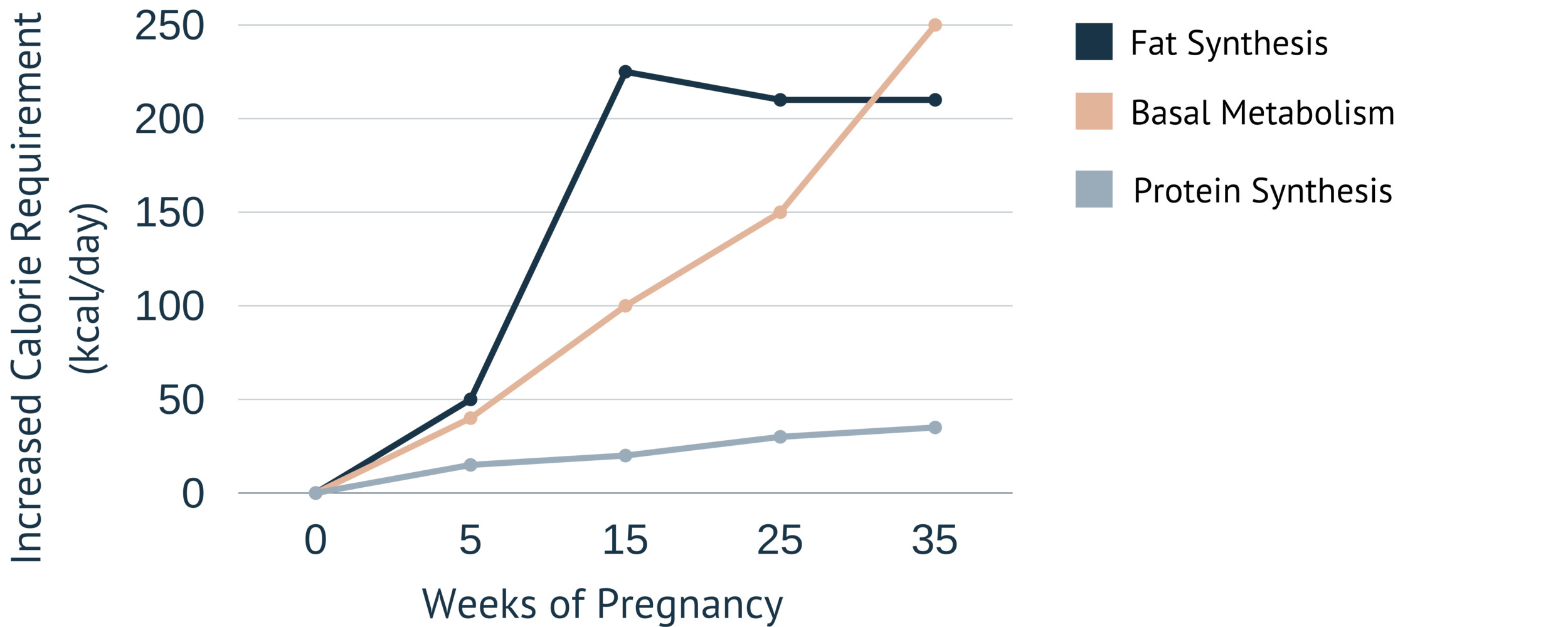Increased hunger is a natural occurrence during pregnancy, as there is a tiny human growing. However, those energy (calorie) requirements are not of a second full-grown human. So, how much do energy requirements change during pregnancy? Let’s have a look:
As you can see in the above image, the further along in pregnancy, the higher the energy needs are. A majority of the extra calories consumed during pregnancy are used for fat synthesis. Fat synthesis is important during pregnancy, as these fat stores will be mobilized during the postpartum period to ensure adequate milk fat concentrations for the newborn. The extra calories also support tissue generation through protein synthesis in the placenta and uterus.
The weight gain guidelines from the Institute of Medicine range from 11 to 40 pounds throughout pregnancy. It is also the recommendation of the Institute of Medicine that most of that weight be gained in the second and third trimesters of pregnancy. Despite these (seemingly) specific numbers, energy needs vary from woman to woman. I always recommend that women listen to their body. Eat when feeling hungry, choosing foods high in nutrients. Drink when feeling thirsty. And remember, women know their bodies. It is our job as practitioners to remind them that they do.
Are you looking for more individualized support? Can now meet virtually with a Registered Dietitian through Hope Feeds Babies. Click below to schedule!

